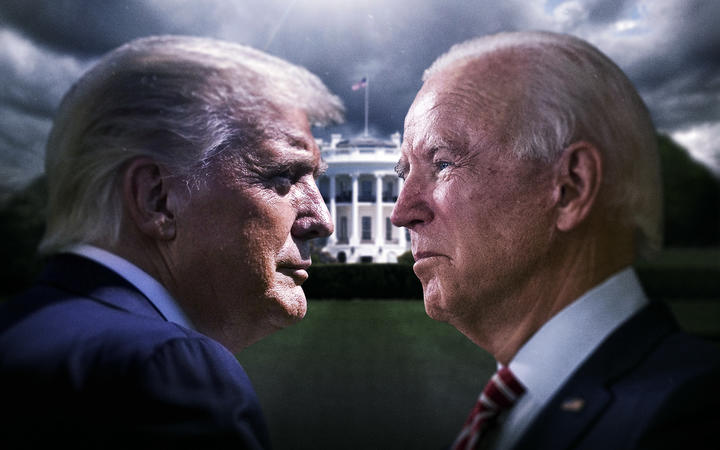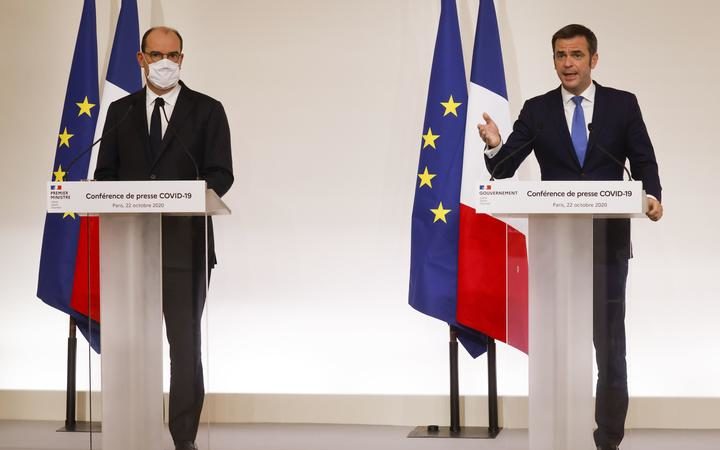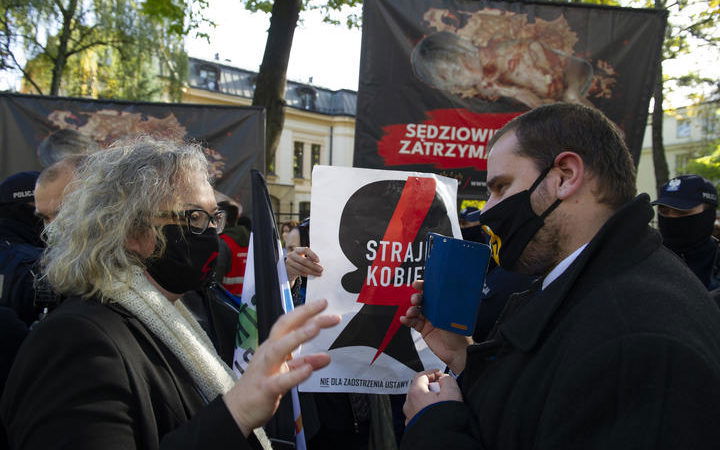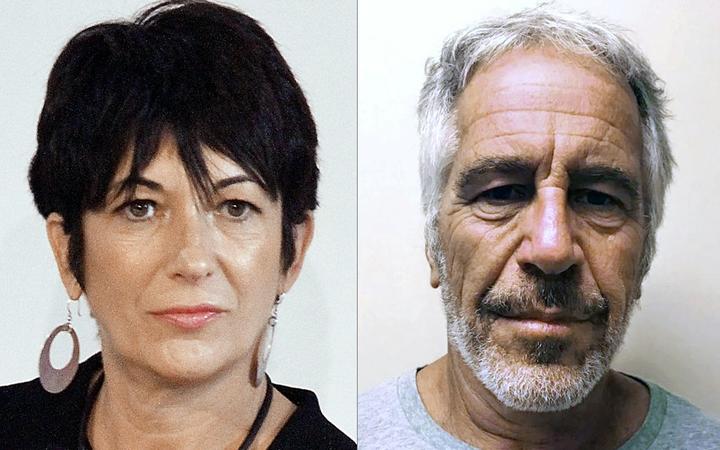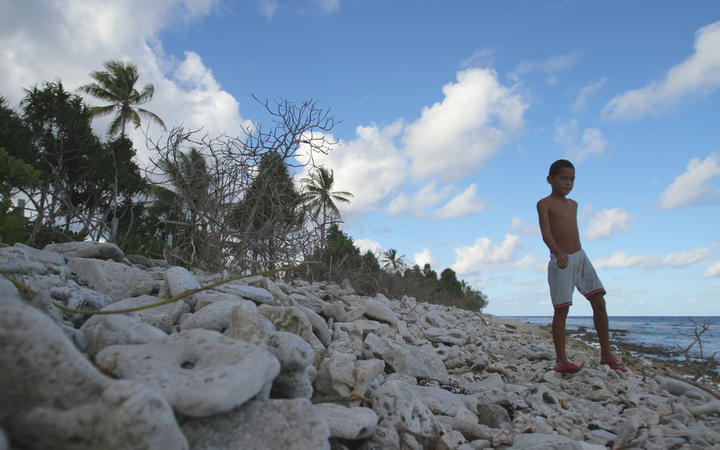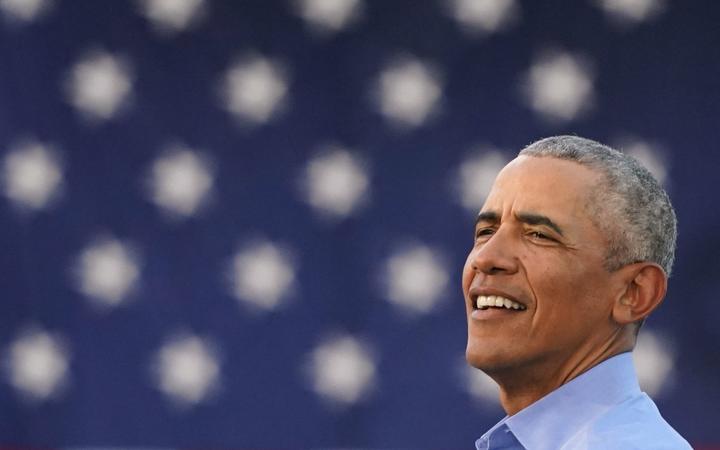Covid-19 surges across the US as some hospitals stretched
Several US states, many of them in the Midwest, have reported record single-day increases in Covid-19 infections, further evidence that the pandemic is accelerating anew as cooler weather takes hold in many parts of the country.
A person walks past a Covid-19 Testing Center in the Borough Park section of Brooklyn. Photo: AFP
Indiana, North Dakota, Illinois, Montana, Oklahoma, Utah and Ohio posted daily records today, according to a Reuters analysis, while Florida reported more than 5500 new cases, its highest single-day increase since 15 August.
Twenty-eight states have reported their daily record high of Covid-19 cases in the month of October alone.
Today, the number of coronavirus deaths reported across the country reached its highest in two months. Increases in deaths tend to trail spikes new infections by several weeks.
The US Food and Drug Administration has formally approved Gilead Sciences Inc's antiviral drug remdesivir, which has been in wide use under an emergency authorization, for treating patients hospitalized with Covid-19. It is the first drug officially approved for the disease in the United States.
Since the pandemic reached the United States earlier this year, the nation has lost more than 222,000 lives, the world's highest total as well as one of the highest per capita death rates, especially among developed nations.
The autumn resurgence and dire predictions that the spread would further accelerate in the cold winter months have once again cast a harsh spotlight on President Donald Trump's handling of the pandemic.
The Republican incumbent will debate Democratic challenger Joe Biden today for the last time before the 3 November election. But with less than two weeks before the election, Trump's seemingly dismissive approach to the coronavirus has clouded his re-election prospects, with polls showing Americans losing confidence in his ability to handle the pandemic.
A report released on Wednesday by Columbia University estimated that between 130,000 and 210,000 Covid-19 deaths could have been avoided in the United States, calling the federal government's response to the pandemic an "enormous failure".
"The weight of this enormous failure ultimately falls to the leadership at the White House - and among a number of state governments - which consistently undercut the efforts of top officials at the CDC and HHS," the report said, referring to the US Centers for Disease Control and Prevention and the Department of Health and Human Services.
White House spokesman Judd Deere blamed the pandemic's toll on China, where the virus originated, and the World Health Organization - two favourite Trump targets - and said Trump's actions saved American lives. Last month on the Fox & Friends show, Trump said he would give himself an "A+" for his coronavirus response.
Hospitals strained
Along with spikes in cases and deaths, the number of Covid-19 patients in US hospitals climbed to a two-month high. There are now over 40,000 hospitalized coronavirus patients across the country, up 33 percent from 1 October, according to a Reuters analysis.
In Wisconsin, a Covid-19 hotspot and a pivotal battleground state that could help decide the presidential election, hospitals were feeling the strain from the surge in cases.
"We have a tremendous volume of patients in our hospitals right now," Dr Jeff Pothof, an emergency medicine physician at University of Wisconsin Health in Madison, told Reuters. "I think a lot of the hospital systems in Wisconsin are feeling really stretched."
Pothof said some medical facilities were beginning to turn additional space into areas where coronavirus patients could be treated.
"The good news is we had lots of plans in place," he said. "It's that tightrope of meeting the need of Covid patients but not potentially harming patients who don't have Covid because we need to think about postponing their care."
On top of the health toll, the pandemic has weighed heavily on the finances of millions of Americans, who say they are barely getting by as Washington wrangles over another round of financial aid.
In Illinois, some residents planned to protest a fresh round of Covid-19 restrictions announced this week by Governor J.B. Pritzker.
A petition to the governor posted on change.org by a restaurant owner in St. Charles, Illinois, urged businesses to stay open tomorrow, when Pritzker's restrictions in some counties, including a ban on indoor dining, are set to go into effect.
Chicago Mayor Lori Lightfoot today announced a 10pm curfew for bars, restaurants and non-essential businesses in the city for at least the next two weeks starting tomorrow, to help stem the spread of the virus.
Lightfoot, in a news conference, said the city is on a path for tougher restrictions in the holiday season, including another stay-at-home order, if the virus spread is not better controlled.
- Reuters


